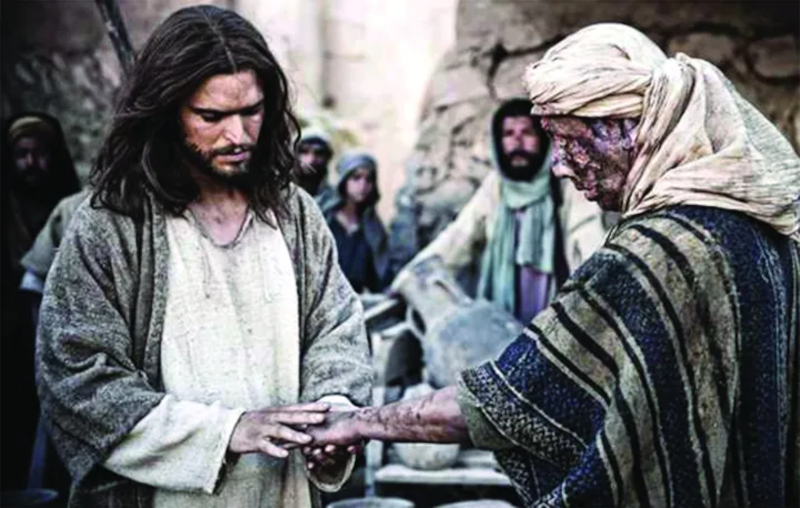When the leprous man saw Jesus, he bowed with his face to the ground and begged him, “Lord, if you choose, you can make me clean. Jesus said, “I do choose. Be made clean.” Immediately the leprosy left him.”
Luke 5:12-16
To be a person with an obvious and debilitating skin disease was to suffer in both physical as well as social ways. Worrying about and contending with the consequences of such a disease was a daily experience. Isolation, pain, poverty, and loneliness were common companions. These were the kinds of people to whom Jesus was drawn.
The leper in Luke 5 is not the only person who recognized Jesus’ authority and power. The list includes the blind who longed for sight, the lame, and those with various illnesses. But healing people was not Jesus’ chief mission. If so, then he didn’t go far enough with it. There were many more people who did not receive his healing touch. For example, when Jesus went to the pool of Bethzatha, there were many ill people laying around it edges. But Jesus only healed one of them, John 5:1-9.
One of the things that strikes me about this leper is his humility. Luke said that when the leper saw Jesus he bowed with face to the ground. “You can heal me if you wish it to be so,” was the leper’s response to Jesus. No one required that he do that; the leper was personally overwhelmed by the person of Jesus, nor did the leper beg or demand that he be healed. He only expressed his faith in Jesus’ capacity – “I know you can heal me.”
Ronald Byars writes that if Jesus only came to heal, then he was no different than the magicians, workers of miracles, and faith healers that prowled around looking for followers. Jesus told the grumblers that didn’t like his associating with tax collector, Zacchaeus, that his mission was “to seek and save the lost,” Luke 19:10. And at Levi, the tax collector’s house, he said, “Those who are well have no need of a physician, but those who are sick; I have come to call not the righteous but sinners to repentance,” Luke 5:31–32, NRSV.
Both Zacchaeus and the leper showed their receptivity to Jesus as well to respond in humble and obedient ways – Zacchaeus scrambling up in a tree in order to see Jesus and the leper prostrating himself in faith before Jesus.
Something to think about: In what ways is the mission to “seek and save the lost” is much grander and in keeping with God’s mission for the Kingdom than a mission to attend to the physical infirmities of humanity?
Something to pray about: Father, the leper and Zacchaeus modeled humility and hunger that we want to have. So we pray that through your Spirit we may understand the need we have for your redemption and healing of the soul. May we not be distracted by and lured by the false teachers and prophets that promise us a physical transformation but have no power to reach more deeply into our lives. In Jesus’ name. Amen.

